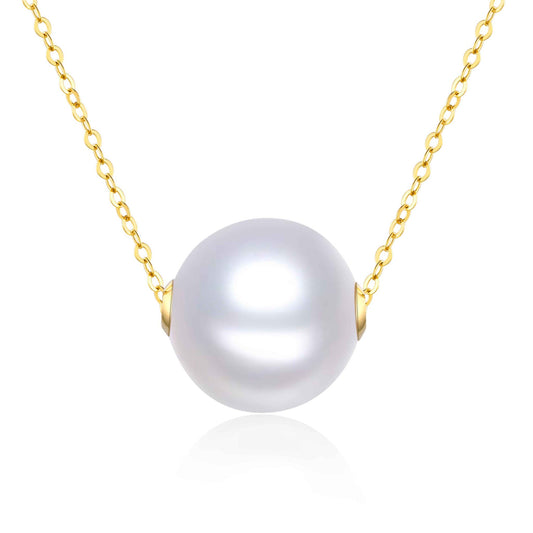
Xiaofa He: The Saviour of the Chinese Pearl Industry
Share
On a spring day in 2002, the streets of Mountain Lake Town, a small town in Zhuji City, Zhejiang Province in China, was filled with incense-burning mourners and hero worshippers. They were mourning the death of Xiaofa He, who died in a car accident on May 8, 2002. Eight buses and more than 200 cars carried thousands of people to town to see Xiaofa He off to his next life.
Why would so many people mourn the death of an ordinary pearl farmer who is mainly unknown outside of the pearl industry?
That’s what this story is about. It’s about how one person impacted the lives of many and saved a whole town from financial destruction, earning him the title of the “spirit of pearls” and elevating him to idol status in the Zhuji City region.
The Legacy of Xiaofa He
If you walk into town today, 17 years after his death, you will hear stories of Xiaofa He from almost every villager you talk to. Stories of how he was always willing to lend money to people in need. It is said that he never refused a loan request from anybody, no matter how large the amount needed.
You’ll hear stories about how an illiterate man – who could only write his own name – never paid a bill one day late. When asked how he did that, even though he couldn’t read, he said he memorized everything and never forgot about his debts.
He was once asked by an official how he knew what to order in a restaurant if he couldn’t read the menu. He said that he understood numbers and the more expensive the dish, the better the dish should be, so he definitely couldn’t go wrong. And, if there were photos on the menu, even better; he knows how a lobster looks.
Xiaofa’s personal motto was “Giving small begets small, but giving big begets bigger.”
And this was never truer than when the townspeople and pearl farmers faced an economic crisis that threatened to cripple them – from which they may never have recovered if it wasn’t for Xiaofa.
A Financial Crisis
Between 1998 and 2000, Southeast Asia was plunged into a financial crisis. As luxury goods are always last on the to-buy list, pearl consumers tightened their purses. Not only that, the market was flooded with second-hand pearls as their previous owners needed money to keep their own heads above water.
The demand for pearls decreased. With too much product and too little demand for it, the trading volume of the Mountain Lake Town fell overnight. No-one was buying pearls.
Unstable markets are great for speculators. In stable times, all parties involved in the supply chain are rewarded fairly for their contribution, but during a financial crisis, it’s the speculators that smile all the way to the bank.
As farmers needed money for food, clothes, and school fees, they became desperate. But even worse, within the local supply chain, there are normally a lot of credit transactions. With no pearl sales, not only were farmers pressured to make ends meet on a basic level, but they also had debts that they couldn’t pay, which affected the whole town.
The more desperate they became, the lower the prices pearls farmers were willing to accept for their pearls.
A Small Chinese Town’s Credit Chain
To understand the effects of debt in a rural community, you have to understand Chinese culture and the way the credit chain works in a small town.
Under normal circumstances, credit transactions are not a problem – it is, in fact, the norm. In a small town where everyone knows each other, you have to keep to your credit agreements if you wanted to stay in business. News travels fast and trust is one of the highest qualities in Chinese culture. For that reason, everybody pays their debt on time. Not keeping to their repayment agreements is almost unthinkable.
But by 1999, the cash flow in town dried up. With no-one buying pearls, the local pearl wholesalers couldn’t pay farmers or even buy new products. Farmers couldn’t pay their debts, which in turn affected the whole town. To make it even worse, the three biggest pearl wholesalers in town packed up and left town almost overnight.
A Worsening Situation
Back to the speculators; this crisis benefited them nicely. Even when the market started to recover and consumers were starting to buy pearl jewelry again, the big-city and international wholesalers decided to hold off on buying from the farmers and local wholesalers.
They still had some stock left, so there was no urgency to buy new stock.
In the meantime, the situation in town worsened. Pearl farmers were becoming more desperate and were lowering their prices more and more – pearl prices fell to half their original asking prices.
This was exactly the situation the speculators were hoping for. The longer they could hold out, the lower the prices would get and the bigger the profits they could make.
The town came to a standstill. People began to panic. Some considered packing up and leaving their debts behind – a clad on their name they’d have to live with for the rest of their lives and for which they may even face jail time.
But still, no help was coming from the big wholesalers.
Xiaofa He to the Rescue
Not the type to turn a blind eye, Xiaofa He started to buy pearls from farmers. He spent 1 billion Chinese Yuan (about USD 145 million) in cash to buy up the town’s pearl product.
Mr. He started his first pearl farm at an early age. By the time the financial crisis hit, he was already the richest man in town. He owned three companies: pearl farming operations, a pearl trading company, and a pearl processing factory with more than 600 employees. His pearl breeding areas stretched over 30,000 acres and was located in Zhejiang, Jiangsu, Hubei, Hunan, and Fujian.
As money was pumped into the town again, panic was starting to fade. Everybody could pay their debts again, buy food, and take care of their kids’ school fees. The town’s economy was restored, and everything went back to normal.
Lessons Learned
Before the financial crisis, the farmers were comfortable. There was always enough demand for the pearls they could supply. They were extremely hard-working and produced high-quality pearls, but they never planned for unexpected situations. After the financial crisis, they learned that they should not over-produce and that they should diversify their investments.
The only ‘losers’ in this story was the speculators. They were waiting for a big payday, but instead, they had to pay normal prices and lost out on profits they could have had, had they played nicely.
We all love a good story where the good guys win and the bad guys are left with their tails between their legs. For the town of Mountain Lake, their story could have turned out very differently if it wasn’t for Xiaofa He.
Now you understand why thousands of people filled the streets to mourn and worship ‘the spirit of pearls’, and still talk about him every day.
When One Story Ends, a New One Begins
Xiaofa He’s story did not end when he passed away. After his death, his wife Xiaying Chen took over the business. A great innovator, she took the business to a whole new level.
Mrs. Chen started to develop pearls for the pharmaceutical and cosmetics industry. She registered the “Pure Pearl” trademark, and the company was listed on the SME board of the Shenzhen Stock Exchange in 2007, five years after the death of her husband.
The company was the first pearl enterprise to be listed on the stock exchange in China. They also developed “anti-corrosion and anti-aging pearl processing technology” which introduced modern nanotechnology and polymerization technology into pearl processing operations for the first time.
Xiaying Chen – a leader and respected entrepreneur in her own right – may not have achieved these great heights for the company if it wasn’t for Xiaofa He’s example.
If you listen closely, you can still hear the echo of Xiaofa’s words in the halls of the Pure Pearl Group: Small begets small, and big begets bigger.



